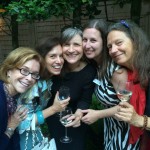November 7th, 2015
By Dona Munker
Whose life is valuable enough to deserve a biography? According to the attendees of an all-day conference on October 2 at the City of New York Graduate Center the answer was, “Any life has the potential to be a biography.” The event celebrated the twenty-fifth anniversary of the founding of the Women Writing Women’s Lives Seminar, an ongoing independent discussion group of about seventy women journalists, independent writers, and academic scholars.
The WWWL website says the seminar’s official mission is finding “new ways of looking at and presenting women’s stories” and, ultimately, to influence the way those stories are written. Keynote speaker and co-founder Deirdre Bair recalled that the group came into existence almost by accident. In October 1990, Bair, who had just published a landmark study of Simone de Beauvoir, and the late Carolyn Heilbrun, who was working on a biography of Gloria Steinem, invited a small number of feminist biographers to meet informally to talk about their projects. But instead of the ten or twelve friends they had invited, more than fifty people showed up. Stunned, the two organizers listened as one woman after another poured out her concerns about the obstacles involved in researching and writing the lives of women—including the need to find “the courage to think that women’s lives, on their own and without any attachment to men, were important and interesting enough to deserve being put into print.”
Changing Attitudes, Persistent Problems
Before the 1970s, publishers showed scant interest in serious biographies of women, unless the women were queens, female entertainers, or recognizable public or literary figures, such as Helen Keller or Emily Dickinson. By and large, it was felt that women who were not already well known belonged in the biographical limelight only as wives, mistresses, or muses of “great men.”
As the impact of the women’s movement of the 1960s and ’70s made itself felt, however, that situation slowly began to change, and in the decades that followed, market-conscious publishers recognized that there was an audience for books about little-known women who overcame obstacles and achieved remarkable things in their own right.
Biographers of women nevertheless face hurdles that biographers of male subjects are less likely to encounter. Carla Peterson, a historian who has written about the men and women of her prominent nineteenth-century New York African-American family, had to contend with the fact that women, far more often than men, have left little or no trace on the historical record because of their traditional reluctance to expose themselves, either by word or by deed, to public scrutiny.
A self-imposed silence can also be produced by a sense of educational inadequacy—even when the subject has led a exceptionally public life. Sallie Bingham began looking into the life of tobacco heiress and philanthropist Doris Duke and found that Duke, who was raised to be a fin-de-siècle socialite, considered herself so ignorant that she refused to write letters, forcing Bingham to reconstruct her personality from correspondence written to her rather than by her.
Women can also vanish into the historic ether when family members or heirs, either out of embarrassment or a conviction that their grandmother’s letters are of no interest or value to posterity, lose, discard, or sell off papers left by female relatives. Betty Boyd Caroli, whose biography of Lady Bird and Lyndon Johnson was published last month, found herself forced to “work by hunches” about Lady Bird’s connection with her mother because of what she described as an “almost utter absence of information” about this critical relationship in her subject’s life. Still, sometimes a biographer gets lucky. Ruth Franklin, who is working on a biography of the writer Shirley Jackson, rescued a box of her subject’s letters from an old filing cabinet just before the cabinet was to be auctioned off in the estate sale.
Even when a woman’s papers end up in an archival collection that bears her name, they may remain uncatalogued, rendering them effectively useless to researchers. Furthermore, if the collection is named for a male relative, a woman subject’s documents may be subsumed to his and effectively “lost.” Franklin, for instance, discovered that many of Shirley Jackson’s letters had been catalogued under the name of her husband, the critic Stanley Edgar Hyman, making them difficult to find.
Extending Biography’s Reach
The famous phrase “The personal is political” has its counterpart in feminist biography, where it is a given that the private and the public are inseparably connected. This emphasis on private lives and personal relationships has extended contemporary biographers’ ability to explore the complex interworkings of individuals, both with each other and with society. As an example, Diane Jacobs pointed out that her most recent book, Dear Abigail, a study of Abigail Adams and her two sisters, depicts “a private nation,” adding the personal to the political. “I didn’t want to write just another biography of John Adams,” she explained, noting that the psychological and social issues that emerge in the book—the nature of sisterhood, the meaning of women’s friendships in a male-dominated society—would not have emerged from a traditional biography of a man.
Do publishers still care if no one has heard of the subject? Well, yes. Even so, both Bair and Alix Kates Shulman agreed that the last twenty-five years have seen a significant shift of attitude toward women—and men—subjects who aren’t household names. “The subject,” said Shulman, a novelist as well as a biographer, “now counts less than the quality of the writing.” Bair said that by holding the biographer to a high standard of both writing and scholarship, feminist biography has succeeded in showing “that any life is an appropriate subject for exploration in the genres of biography, history, and memoir.”
It has also raised the bar for biographers as narrators. Nowadays, as Bair noted, “the biographer has to be able to write a page-turner and yet refuse to relinquish truth and authenticity.” Given the obstaclces to unearthing and depicting the complexities of women’s experience, that task can sometimes seem daunting. Nevertheless, said Bair, “We have an obligation to find the answers to our questions, and to never stop trying to find ‘the truth.’”
A video of the panel discussions will be available soon; the link will be posted on the Women Writing Women’s Lives Website and in a future issue of TBC.
Dona Munker is the writer and coauthor of Daughter of Persia: A Woman’s Journey from Her Father’s Harem through the Islamic Revolution. She is working on a book about Sara Bard Field, a twentieth-century suffragist, poet, and “free-lover.” Her reflections, as well as an expanded version of this article, are available on her blog, “Stalking the Elephant.”
 In collaboration with the Oxford Centre for Life-Writing at Oxford, housed at Wolfson College and directed by Professor Dame Hermione Lee, Biography International Organization (BIO) is hosting Biography Beyond Borders, a colloquium on American and European biography. The colloquium is 9:30 a.m. to 6:30 p.m. on Saturday, November 5. Lee will deliver the afternoon’s keynote address, and distinguished American biographer Carla Kaplan will give lecture the previous evening at the Centre for Life-Writing Research at King’s College, London.
In collaboration with the Oxford Centre for Life-Writing at Oxford, housed at Wolfson College and directed by Professor Dame Hermione Lee, Biography International Organization (BIO) is hosting Biography Beyond Borders, a colloquium on American and European biography. The colloquium is 9:30 a.m. to 6:30 p.m. on Saturday, November 5. Lee will deliver the afternoon’s keynote address, and distinguished American biographer Carla Kaplan will give lecture the previous evening at the Centre for Life-Writing Research at King’s College, London.
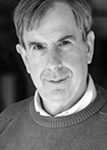
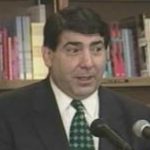
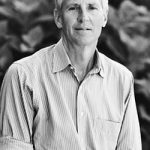


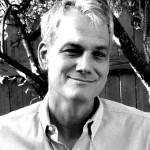
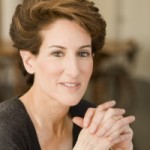
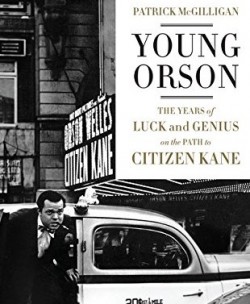
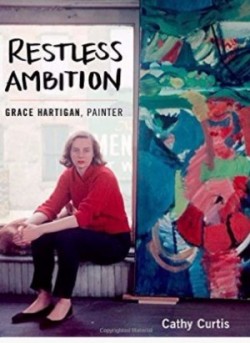
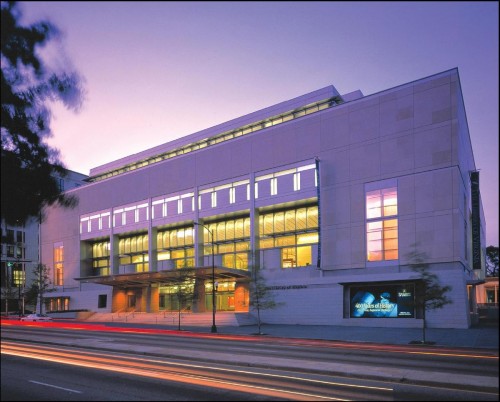
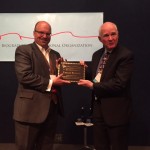
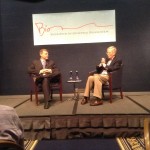 Thomas and Brinkley in Conversation
Thomas and Brinkley in Conversation